SMERU Global Network
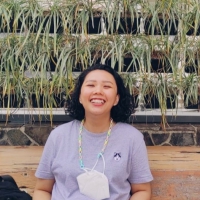
When I submitted my application letter to SMERU, I didn't even know what SMERU was. A friend of mine who had suggested that I apply said that SMERU was one of the best research institutions and if I were to get accepted, I would learn a lot, especially about the socioeconomic issues and poverty in Indonesia.
One of the things that made me happy working at SMERU was the people. They are a diverse, kind group of people. When I started to work, I was surprised by the huge number of staff (previously I was used to working on projects with a small number of staff).

SMERU has always been a top-notch research institute in Indonesia. Most of their publications not only bring “fresh insights”, but are also products of long-term research projects. Some of SMERU's studies are the continuation of related projects in the past. In fact, people who have been following SMERU, including me, are pleased to read the updates on monitoring and evaluation, for instance, which also serve as beneficial resources for researchers outside SMERU. To sum up, as one of SMERU's followers, I became inspired to work and collaborate with SMERU's research team. :)
Being able to work with SMERU's research team was remarkable. At first, I thought I would struggle to mingle with researchers of other areas of expertise, as they had had outstanding research projects in collaboration with national and international donors. However, my anxious thinking was proven wrong, as most of the researchers are grounded, humorous, professional, and willing to help their juniors.
Previously, I had mostly handled projects on women and sexual minority groups. However, since I joined SMERU, I was challenged to delve into development issues that focused more on child poverty. Surprisingly, the case I never thought I would be interested in has recently become one of my research interests!
Besides professionally working with the research division, I worked with SMERU colleagues from other divisions, whom I am also thankful to. Many internal meetings, training sessions, and informal conversations have made my day! One thing is for sure, SMERU has always been a “home”, as I was surrounded by the humblest research professionals I could ever ask for!
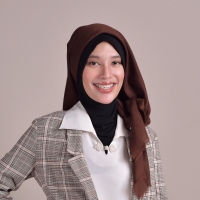
I learned about SMERU from several professors in my class when I was doing my master's degree in Australia. The professors said that SMERU is a leading research institution in poverty reduction and economic development. Based on my professors' recommendation, I applied for a post at SMERU in the hope of becoming part of a leading research group in economics.
SMERU is the best place to learn and improve skills in conducting research and data analysis. SMERU provides an opportunity for all researchers, regardless of their level, to lead a study. This makes our learning curve shoot higher because we can directly learn from practices and experience. In addition, the supervisors and colleagues at SMERU are open to new ideas and are always keen on sharing their knowledge. It was this collaborative and supportive environment that made me finally realize that my skills progressed a lot compared to the time I started working there.
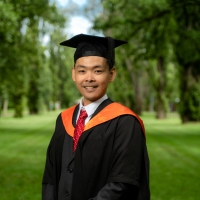
In 2014, I found good and informative research publications by SMERU and used them in writing my master's thesis. In 2015, SMERU's Pak Darno came to the Ministry of National Development Planning/Bappenas to provide some advice, and his talk inspired me to join SMERU. In addition, because SMERU also partners with donors, it made me think that starting a career at SMERU would also open up the opportunities for a career on the donor side.
SMERU is very serious and detailed, and continuously strives to put forward facts in their reports/publications. This makes me proud, and I will not forget to mention that SMERU is an institution with very strong competence. In addition, the companionship at SMERU also fosters a sense of belonging and enthusiasm for work. So much fellow support is available. Such warmth does not stop in the work environment but goes on outside the office.
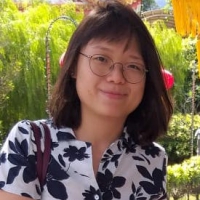
Thanks to my great ignorance, I didn't know about SMERU or that I could live off doing research. Following graduation, I applied to all positions with the word "research" in them and found SMERU through the ANU's website, and it was this affiliation with international institutions that got my attention. Looking back, Pak Asep should have penalized me for not recognizing SMERU sooner, but thank God he didn't, and the rest was history.
I found my first real family in SMERU. Once you join SMERU, you become a member of one big family that is full of trust, warmth, and genuine intentions. Despite my short stay in SMERU, I owed all paths that were opened to me after to the advice, experience, and connections I received from SMERU (there are sooo many). To the late Ibu Budi, to Pak Asep, and to Pak Darno, THANK YOU!
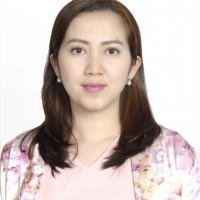
During my study time in Monash University, Australia, I heard a lot about SMERU and read some of its publications/research reports. I'd always had an interest in doing policy work, particularly on socioeconomic issues, but I'd never had any experience working in a research institute before. Hence, I eventually decided to join SMERU as soon as I earned my master's degree, as I saw that SMERU would be the ideal place for me to learn more and contribute to the development programs and policies in Indonesia.
My job involved developing work plans for various research project activities, including writing research proposals, progress reports, and budget plans; managing strategic relationships with principal clients, partners, and stakeholders; and managing the tendering process to donors and external partners. I also worked closely with more than 30 researchers and built networks with other think tanks. I enjoyed how varied my day-to-day work was in SMERU. I had superb, nice, and talented coworkers; a family-friendly working environment; and I was also given the opportunity to be involved in a particular research project that was of my interest. I also established contact with prominent policymakers and learned how to influence the government and public debates. The skillset I acquired during my time in SMERU has been proven to be very useful to support my current work when dealing with policy-related matters at the regional level.
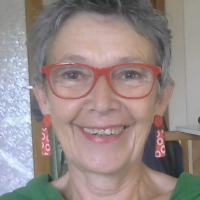
SMERU’s research is really interesting and has the potential (and I am sure it does) to positively contribute to society.
The staff members were all so nice and so receptive to discussing ideas and options. I learned so much about Indonesia through reading papers, having conversations, and capturing glimpses of live.

Decided to join SMERU because of my strong interest in the relationship between evidence and public policy. My experience as a journalist opened my eyes to the reality that many public policies are made without being grounded in adequate evidence. I wanted to gain a deeper understanding of the factors contributing to this gap and felt that SMERU, with its reputation as a leading research institute focused on poverty and inequality reduction, was the right place to explore this issue.
My best experience at SMERU was the opportunity to collaborate with a team of researchers who were not only dedicated but also critical and supportive. I was deeply inspired by the work environment that fostered open dialogue and the exchange of insights.
One moment that often comes to mind is when we successfully produced research outputs that influenced government policies or decisions. My experience reinforced my belief in the importance of institutions like SMERU in promoting evidence-based policymaking.
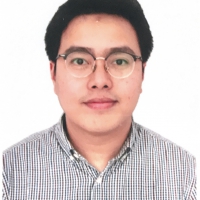
The main reason I joined SMERU was because SMERU is one of the respected and credible research institutes in Indonesia. It’s also a great place for those who are interested in development economics, policy research, or social science research in general to get a hands-on experience in conducting an end-to-end research project.
My whole career at SMERU was an unforgettable one because every day I got a chance to learn something new. However, if I had to choose, I would say that conducting surveys in remote areas in Indonesia was an unforgettable experience. From that experience, I really got a chance to understand better the real situation of the topics that we studied. Besides, to have smart, friendly, and supportive colleagues once I was at SMERU was also a luxurious working environment that not every job can offer.
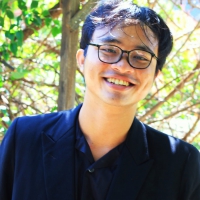
As the leading think tank in poverty and social inequality research, The SMERU Research Institute is a place to learn and engage with fellow academics who share the same interest in the issue.
During my time working for SMERU, I was encouraged to express my opinions freely and was given the opportunity to publish our collective findings in an acclaimed academic journal.


